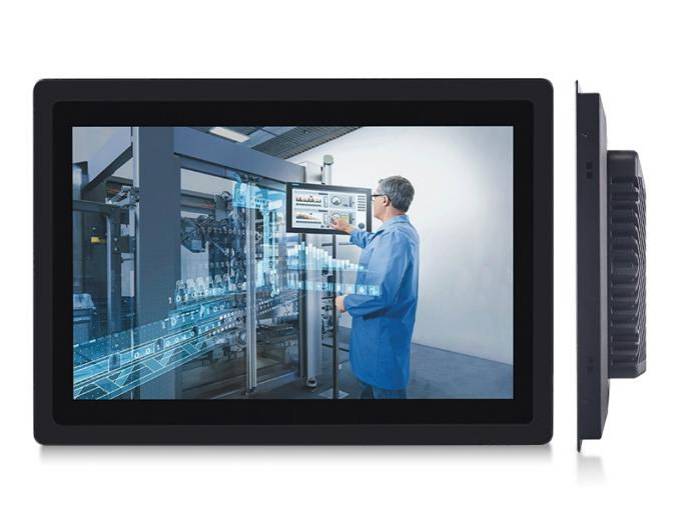What are the Common Applications of Industrial Panel PCs?

Industrial Panel PC, also known as industrial touch tablet PC or industrial computer. It has all the functions like ordinary commercial grade computer, moreover, industrial computer has touch-control integrated design. In the absence of a mouse and keyboard, industrial panel PC can be operated independently. Therefore, the operation is convenient and simple, and it is widely used in industrial field. Industrial tablet PCs are a branch of computers. Unlike commercial computers, industrial tablets require stable performance in different environments. Due to the continuous development of various performance processing platforms for industrial tablet computers, the computing speed of industrial tablets are getting faster and faster. The application of industrial computers in various industries has received widespread attention, and further deepened to meet the simplified operation needs of industrial automation industry.
Some new customers don’t know much about the industry, some even heard about this product for the first time. They don’t know what industrial tablet is used for. Let’s get some introduction about the common application occasions of industrial panel PC.
(1) Industrial Tablet Computer Applies to the Medical Industry
Industrial Tablet PC realizes automatic management of surgical operation, which can save a lot of management costs and time. With its portability and full-function, industrial tablet is a powerful tool of mobile medicine. It connects medical record, laboratory reports and various monitoring and treatment instruments to help medical staff to monitor the treatment conditions and new medical reports of each patient at any time.
- 1. Medical cart equipment
- 2. Diagnostic/therapeutic equipment
(2) Industrial Tablets Applies to Transportation Industry
Transport depart personnel often need to query a large amount of information in real time, but it is difficult to deal with emergencies or large-scale business in time. In addition, transport business is more complex and multiple links and multiple locations of repeated work lead to the risk of omissions and errors. Mobile transportation solutions rely on industrial tablet PC terminals to extend the work system to frontline employees to achieve business processing information search and communication. To be specific, it can applies to the following items:
- 1. Urban Light Rail ticket checking system;
- 2. Maglev train power supply monitoring system;
- 3. Highway toll collection system;
- 4. Train vacuum stool collection monitoring system based on soft PLC;
- 5. Container terminal cargo handling monitoring system.
(3) Industrial Tablet Applies to Service Industry:
Improvement of processing platform performance enable improvement the computing speed and graphics processing speed of industrial tablet computers. With the progress of industry, innovative applications are emerging to test the scalability of industrial tablet PCs. It is one of the important tools of future industrial tablet computers. When standard products can not meet the needs of users. Customization services have emerged in demand, saving the time and cost of user system configuration. To be specific, it can applies to the following items:
- 1. Colleges and Universities: campus card;
- 2. Universities: university computer control and auto-control principle experimental system;
- 3. Finance: multimedia financial self-help terminal;
- 4. Finance: self-help bank access control management system;
- 5. Petroleum: automatic control of oil metering in petroleum industry;
- 6. Agriculture: agricultural greenhouse automation control;
- 7. Food: food assisted automation system;
(4) Industrial Computer Applies to Equipment and Machinery Manufacturing Industry:
- 1. Precise control system for pressure and air tightness test;
- 2. High voltage/light conversion system of X-ray machine;
- 3. Automatic gauge control system of plate, strip and foil rolling mill;
- 4. Maglev active vibration absorber;
- 5. Elevator unmanned control system;
- 6. Automatic control and management system of electronic aging line;
- 7. Engine condition monitoring (noise/vibration);
- 8. Distributed sintering machine monitoring system;
- 9. Distributed hydraulic tool performance checking system.




